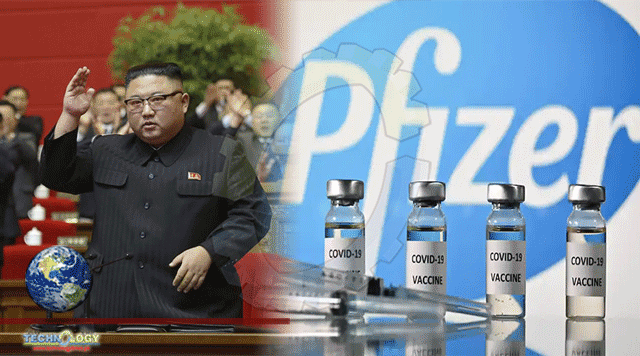Pfizer Was Recently Subject To A Cyberattack From North Korea, South Korean Officials Said, As Reclusive Nation Sought Covid-19 Vaccine Tech.

Pfizer Was Recently Subject To A Cyberattack From North Korea, South Korean Officials Said Tuesday, As The Reclusive Nation Sought Covid-19 Vaccine Technology. It wasn’t immediately clear when the attack occurred or whether it was successful, and a Pfizer rep wasn’t able to comment, the Washington Post reported. But news of the hacking attempt came despite North Korean leader Kim Jong Un insisting that his country has not been affected by the pandemic.
Ha Tae-keung, a South Korean opposition lawmaker and member of the government’s intelligence committee, disclosed the attack and added that the country had observed a 32% increase in North Korean cyberattacks over the last year.
This is not the first time North Korea has been accused of trying to steal information on coronavirus vaccines and treatments. Back in November, Microsoft said both North Korea and Russia tried to digitally ransack pharmaceutical companies and vaccine researchers, though the attempts were mostly unsuccessful. South Korea had also previously thwarted a North Korean hacking attempt into local pharma companies last year.
North Korea has also turned to cyberattacks more frequently during the pandemic as a way to fund its economy. Last week, the UN reported evidence “strongly” pointed toward the country conducting a $281 million theft in September. Though it makes claims to the contrary, North Korea has requested vaccines through COVAX and is slated to receive 2 million doses of the AstraZeneca/Oxford shot, the program reported earlier this month.
AstraZeneca shot approved by WHO as South Africa woes continue. The WHO approved a new Covid-19 vaccine for emergency use Monday — and it’s the AstraZeneca/Oxford University shot. With the OK, the vaccine is now able to be distributed to lower-income nations without their own regulatory bodies at a much more rapid pace, NBC News reported. The AstraZeneca shot makes up the vast majority of COVAX vaccines, with more than 330 million doses slated to be doled out starting in late February.
“We now have all the pieces in place for the rapid distribution of vaccines. But we still need to scale up production,” WHO director-general Tedros Adhanom Ghebreyesus said at a news briefing.
The vaccine has been hailed as a cheaper alternative to its mRNA rivals from Pfizer/BioNTech and Moderna. But it’s not all roses for the shot as reports have emerged that it is not very effective at preventing mild and moderate Covid-19 cases stemming from the virus variant that first emerged in South Africa.
There has been much back and forth between AstraZeneca and South Africa in the last couple of weeks, with the country pausing its rollout of the company’s shots. South Africa has since been seeking to sell, swap or return 1 million doses after they proved only 21.9% effective against mild or moderate cases in a Phase I/II trial, the Economic Times reported, and started inoculating medical workers with J&J’s one-shot vaccine in a Phase IIIb trial instead. Early Tuesday morning, a South African newspaper also said the country would be sharing the AstraZeneca vaccine with other countries in the African Union.
This news was originally published at End PTS.